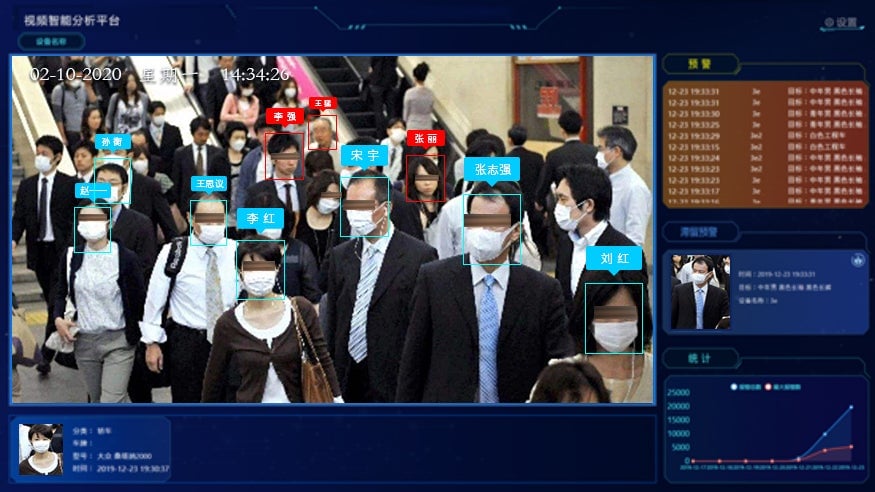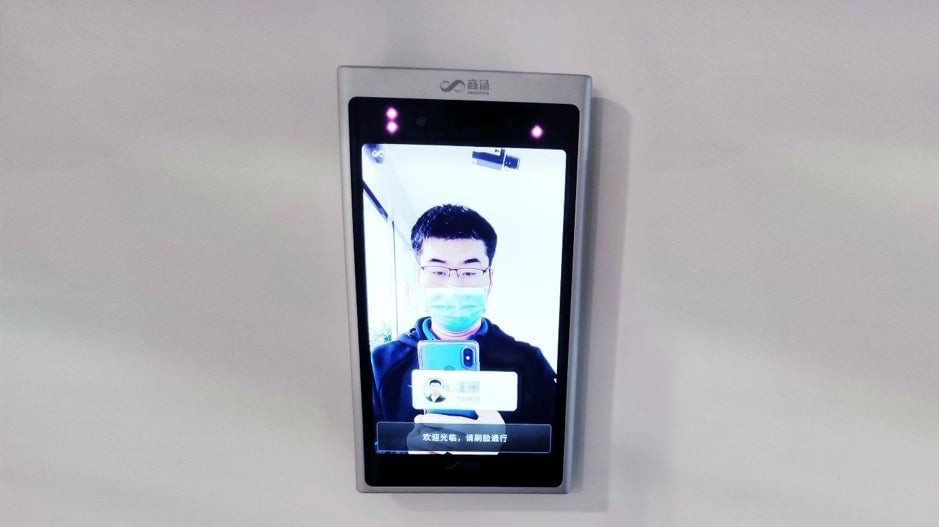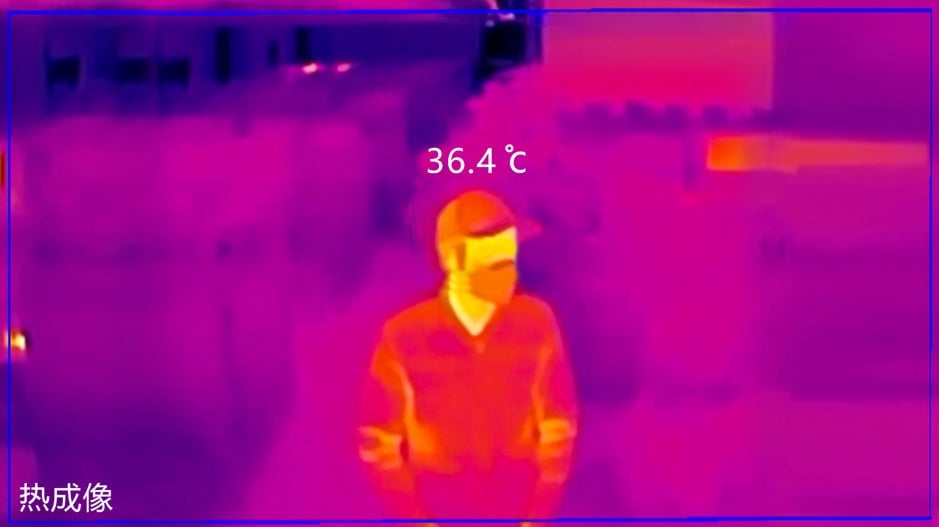China’s facial-recognition giant says it can crack masked faces during the coronavirus
In unwelcome news for protesters everywhere, some Chinese artificial-intelligence companies are announcing their technology can now identify people even when they’re wearing face masks, as part of their efforts to adapt to the continuing coronavirus outbreak.


In unwelcome news for protesters everywhere, some Chinese artificial-intelligence companies are announcing their technology can now identify people even when they’re wearing face masks, as part of their efforts to adapt to the continuing coronavirus outbreak.
China’s SenseTime, the world’s most valuable AI startup, said earlier this month (link in Chinese) that it was rolling out a facial-recognition product that incorporates thermal imaging cameras to help spot people with elevated temperatures, and send pop-up alerts to users of the software. With the addition of a mask algorithm, it can also detect those who are not wearing masks in public places. Meanwhile, for building access control, its software can identify people even while they’re wearing masks with a “high accuracy,” said the release, as well as flag people who aren’t wearing the protective coverings and require them to wear a mask to gain access to a building.
“With these methods, management personnel are provided with a full range of epidemic prevention information such as body temperature, mask-wearing status, and employee identity,” the Feb. 6 statement said.
SenseTime told Quartz its fever-detection system was in use in three public places. Meanwhile, as employees who have been working at home begin returning to offices, allowing employees wearing masks to be identified and enter will be vital for office buildings in coming weeks, it said.
“The system that applies for office building entrances reads the facial characteristics that are not covered, including eyes, eyebrows and parts of the nasal bridge to identify employees,” the company explained, “… so that the employees can keep their masks on at all times while still gaining access to their offices.”
Separately, a subsidiary of South Korean electronics giant LG said last week that it had collaborated with SenseTime to install a building access system at its Seoul offices that is able to identify employees in 0.3 seconds with 99% accuracy even if they are using medical masks, glasses, and make-up.


Beijing-based Hanwang Technology, which works on pattern-recognition technology used in drawing devices, as well as facial recognition, also recently rolled out a feature that allows its door-access devices to recognize masked faces, the company said on Saturday (Feb. 15, link in Chinese). The company said the tech could be used in surveillance devices to identify people wearing masks, as well as to notify authorities of those who are not wearing masks in public places. Beijing Youth Daily (link in Chinese) said it is already being used in some office buildings in the capital. The company didn’t immediately respond to questions.
The announcements come as mask-wearing in China has become widespread amid panic over a virus that has infected more than 72,000 people and killed nearly 1,900. Many cities (link in Chinese) have made the use of such coverings in public mandatory. A school teacher in one province was punished (link in Chinese) for refusing to wear a mask while jogging.
Face masks have long been a familiar sight in China and elsewhere in Asia during illness, as many people still vividly remember the deadly SARS epidemic in 2002-2003. Amid more stringent use than normal, and with biometric access and surveillance far more common now, many people in China noted in recent days they are having a hard time entering offices or condos, and unlocking or paying with their phones. For example, Apple needs a user’s nose and mouth to be in view, as well as eyes, in order for FaceID to work.
Even just a few years ago the ability of facial-recognition software to crack partially covered faces was not considered a reality, but many companies have been training software to be able to do so. The use of masks in Hong Kong’s ongoing protests—at one point the local government outlawed them at public assemblies in a bid to deter demonstrators—could have added urgency to the process, at least in China.
Still, it may not be the best time for companies to tout their latest advances in surveillance. Megvii, the Chinese creator of the Face++ recognition software that is planning to IPO in Hong Kong, had to put out a statement (link in Chinese) last week after it faced an online backlash in response to a Reuters report that it was borrowing money to develop its technology to identify people using masks. It said its technology was “misunderstood,” and that it had developed a system to identify foreheads to scan for temperatures only, which is being trialed in Beijing.
Many fear the coronavirus is giving authorities a chance to embed surveillance ever more deeply in their lives.
”Everyday, we are seeing more tech companies in China roll out fancy surveillance combinations, such as facial recognition + big data, and remote monitoring + real-time alerts in a bid to control the outbreak,” said one user of social media platform Weibo (link in Chinese). “This is one example of how tech advancements sneak into our lives using an excuse like the virus… where is the boundary for people’s privacy?”